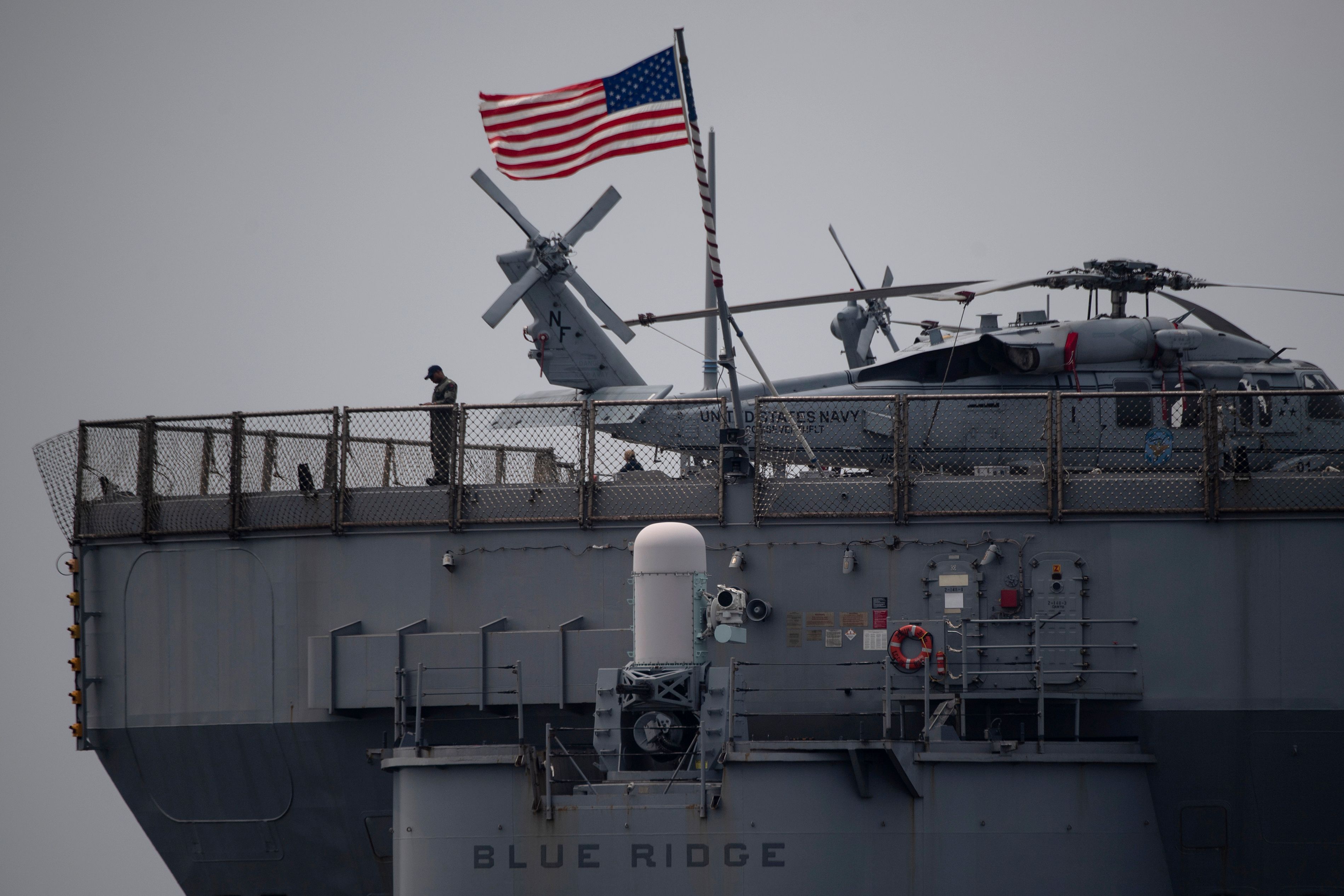The United States will defend the Philippines against attacks in the South China Sea, Secretary of State Antony Blinken told his Manila counterpart.
Blinken emphasized the importance of the US-Philippines Mutual Defense Treaty and “its clear application to armed attacks against Philippine armed forces, public vessels or aircraft in the Pacific, which includes the South China Sea,” according to a State Department read-out of a phone call between the two released on Wednesday.
He told Philippine Foreign Secretary Teodoro Locsin Jr. that the US rejects China’s claims in the contested South China Sea “to the extent that they exceed the sea zones that China can claim under international law” , said the State Department.
The reading – the first by the secretary to make explicit mention of China’s vast territorial claims – said Blinken “would support Southeast Asian claimants” in the face of Beijing pressure.
Shortly after the conversation, Locsin tweeted that he and Blinken “will do it very soon”.
The call came a day after Locsin’s Foreign Affairs Department confirmed that it had filed a diplomatic protest against China’s new coast guard law, which gives Chinese maritime authorities permission to fire on foreign ships.
Locsin had previously said that Beijing legislation – formally adopted by the National People’s Congress on Friday – “was none of our business” before revealing that he had changed his mind.
“Although the enactment of laws is a sovereign prerogative, this – given the area involved or, in this case, the open South China Sea – is a verbal threat of war to any country that defies the law; which, if not contested, is submission to it, “he wrote on Twitter.
China’s Foreign Ministry said the law is in line with international practice. However, it caused alarm because of Beijing’s big claims about reefs in the South China Sea, which are disputed by regional neighbors, including Vietnam, Malaysia, Brunei and Taiwan.
Territorial disputes also extend to the East China Sea, where the Japanese-controlled Senkaku Islands are claimed by both China and Taiwan.
A strong military presence remains in the South China Sea, with the People’s Liberation Army conducting three days of naval exercises until January 30, just days after the USS aircraft carrier Theodore Roosevelt was deployed in the region for its own exercises.
Other calls made by Blinken on Wednesday included conversations with colleagues in Thailand and Australia. Important regional allies in Japan and South Korea were called on Tuesday, according to the State Department.
One of President Joe Biden’s campaign promises was to return the United States to a leadership role in regional and global affairs. His choices for the cabinet appear to point to a strong desire to maintain US interests in Asia and contain China’s growing influence.
In almost every call to foreign ministers, Blinken emphasized the importance of a “free and open Indo-Pacific”, a strategy that was formalized under the administration of Donald Trump.

NOEL CELIS / AFP via Getty Images
